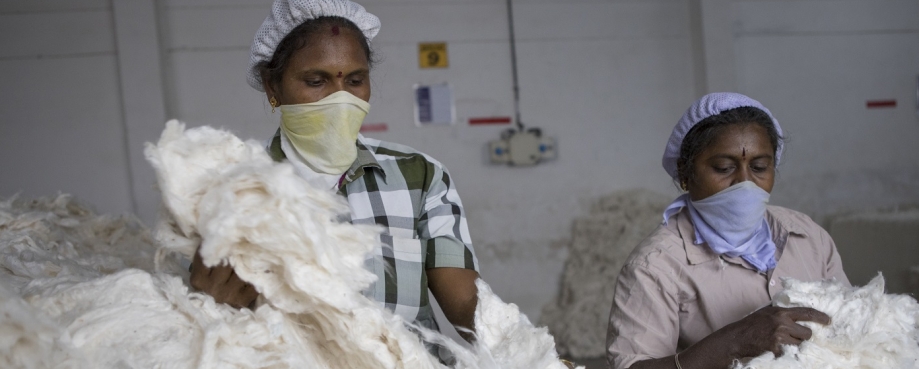
Stirling Smith, ETI trainer and blogger, cannot understand why companies are not doing more about gender violence at work in India.
You may have read reports about the recent survey that found India is the most dangerous country in the world for women. Well, all I can say is, I told you so.
One of the earliest blogs I wrote for the ETI was on this topic. And I have kept coming back to it.
There are times I empathise with Cassandra. You might remember she was the daughter of King Priam of Troy. She was always predicting doom and gloom.
She was always right.
And she was never believed.
Suicide at work
Now, to add to the workplace sexual harassment, the rapes (106 a day - official data) and the female infanticide, we have something new in India.
Young women workers in south India’s garment industry are killing themselves.
Sometimes in the factory, or in the hostels attached to the factories. Twenty suspected suicides occurred in just three months, in the state of Tamil Nadu.
Once you start to look into it, workplace suicide occurs in many countries.
Jenny Chan has written about the spate of suicides at Foxconn, which makes Apple devices, and were the result of unbearable pressure.
Workers killed themselves by jumping from high buildings. With breathtaking cheek, management made workers sign a pledge that they would not take their own lives.
Just to be sure, they also installed nets on the 11th floor!
France, Japan and the UK
Or take France. Nineteen workers at France Telecom killed themselves from 2008 onwards as restructuring ripped through the company.
But, in France, they do these things differently. Workplace suicides are recorded as such, and the employer investigated at a matter of course. So the former CEO and six other managers are being put on trial for their actions in driving workers to take their lives.
The penalty will be a small fine. Personally, I would have thought it was a case for bringing Dr Guillotine out of retirement. France Telecom was just the tip of the iceberg – workers killed themselves in many other companies.
In Japan, suicide at work is known as karo-jisatu and is being treated as an urgent public health issue.
In the UK, of course, the Health and Safety Executive does not collect any statistics, and work-related suicides are not recognised as such. You can find an excellent summary of the issue here.
No power, no voice
Let’s now return to Tamil Nadu.
Young women workers in Tamil Nadu are, more often than not, totally powerless. Apart from their working conditions, abuse by supervisors and sexual harassment, even the hostels they live in are controlled by management, under a regime sanctioned by the state government.
The expert on workplace suicide, Professor Sarah Waters at Leeds University has this to say:
The French experience shows that when people feel they no longer have a voice in the workforce, they protest in other ways including, in the most extreme cases, by killing themselves.
When are UK companies going to act?
I'm fed up of being like Cassandra.
It’s time for UK companies sourcing from India to stop looking the other way about gender violence and sexual harassment, and relying on the audit reports that say there is no problem.
Due diligence means acting on the reports about India being the most dangerous country in the world for women, or the reports about young women taking their lives.
It means insisting on setting up real worker voice in the factories and hostels.
It certainly does not mean accepting for one minute, the solution put forward by the employers: “counselling sessions”.
Very soon, I hope, somebody will start looking at the lists of factories in Tamil Nadu supplying the UK, and comparing that with the reported suicides and asking XYZ PLC: “Where were you?”
In Tamil Nadu, ETI is working with committed international retailers and local suppliers, unions and NGOs to address the exploitation and abuse of young women workers. We welcome new members. Find out more here.
